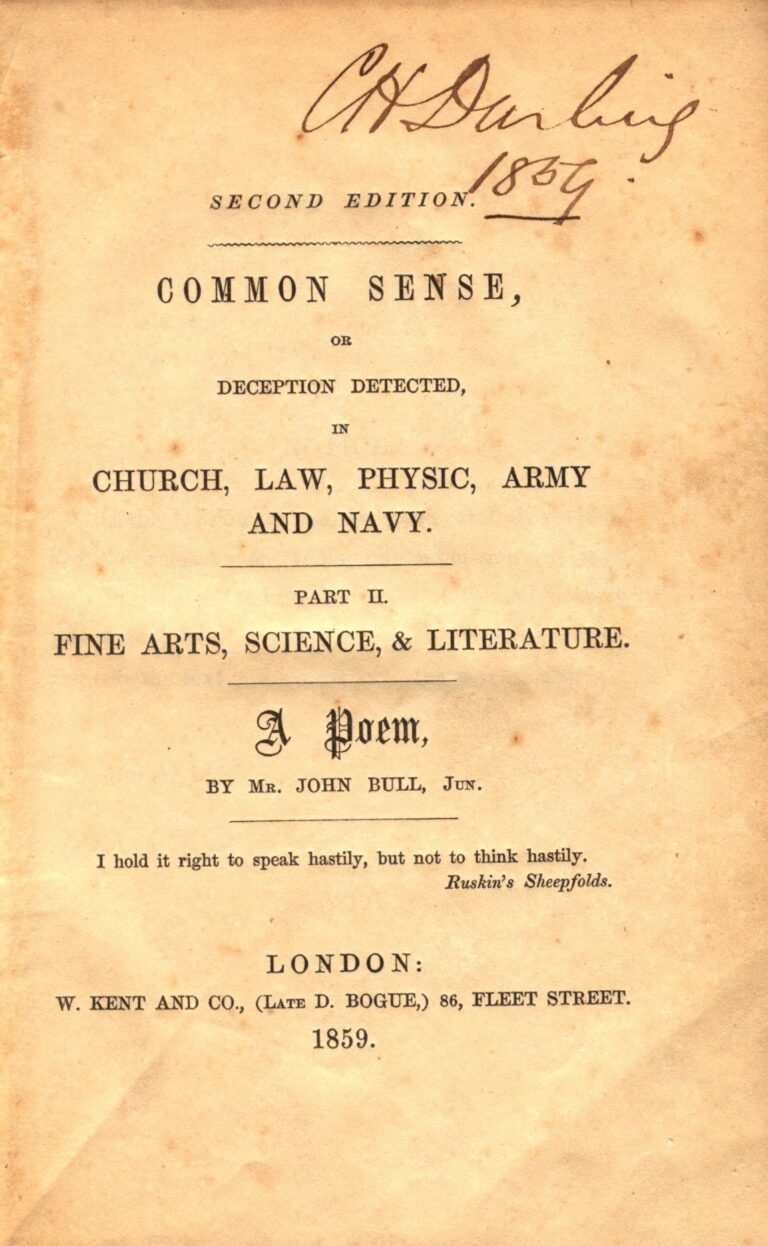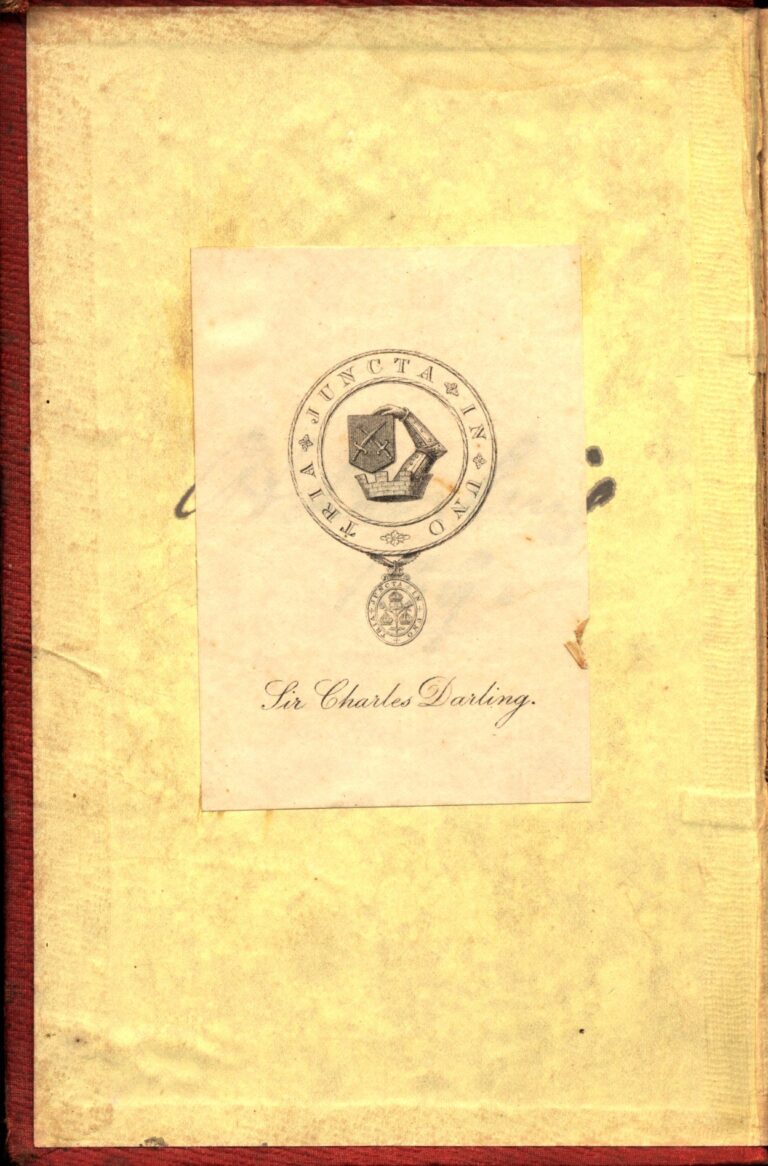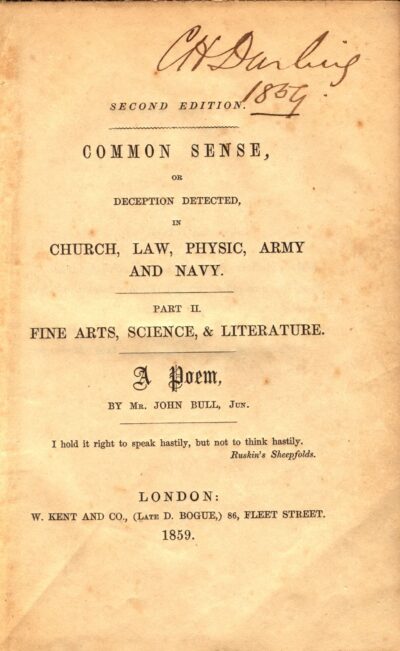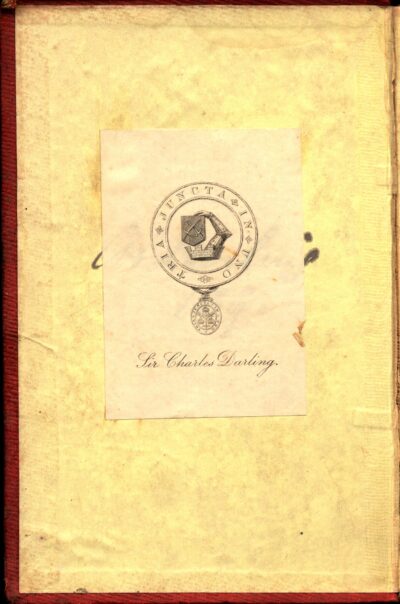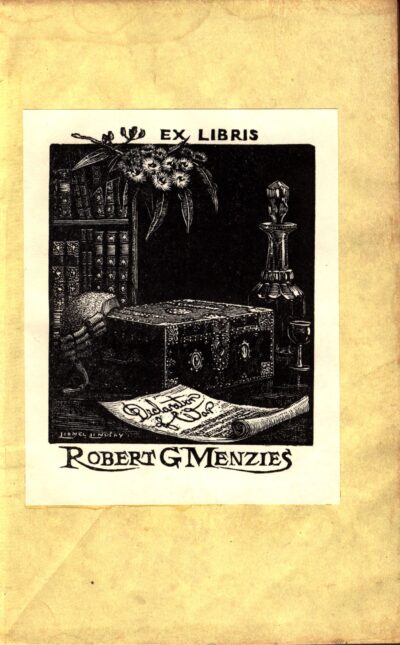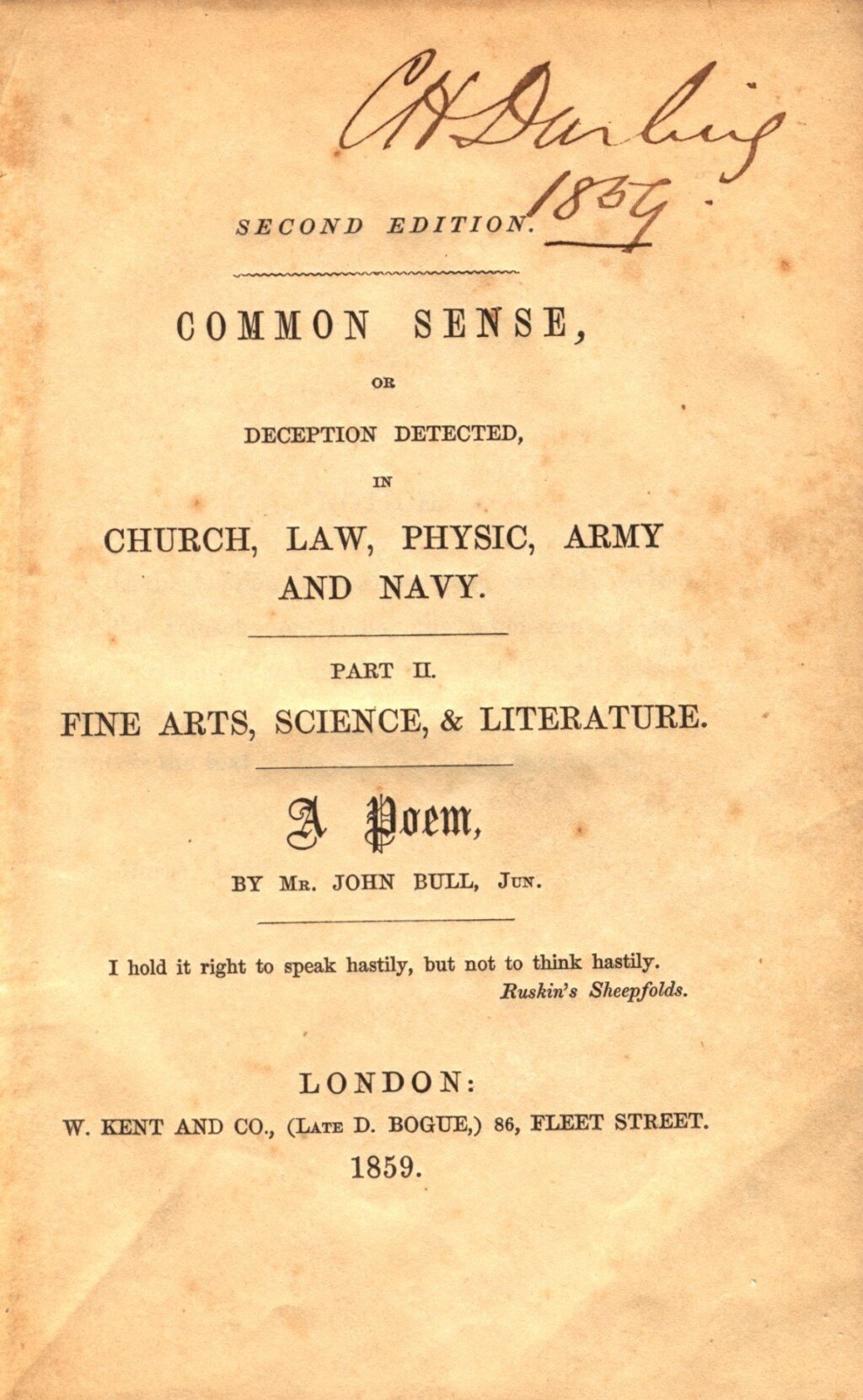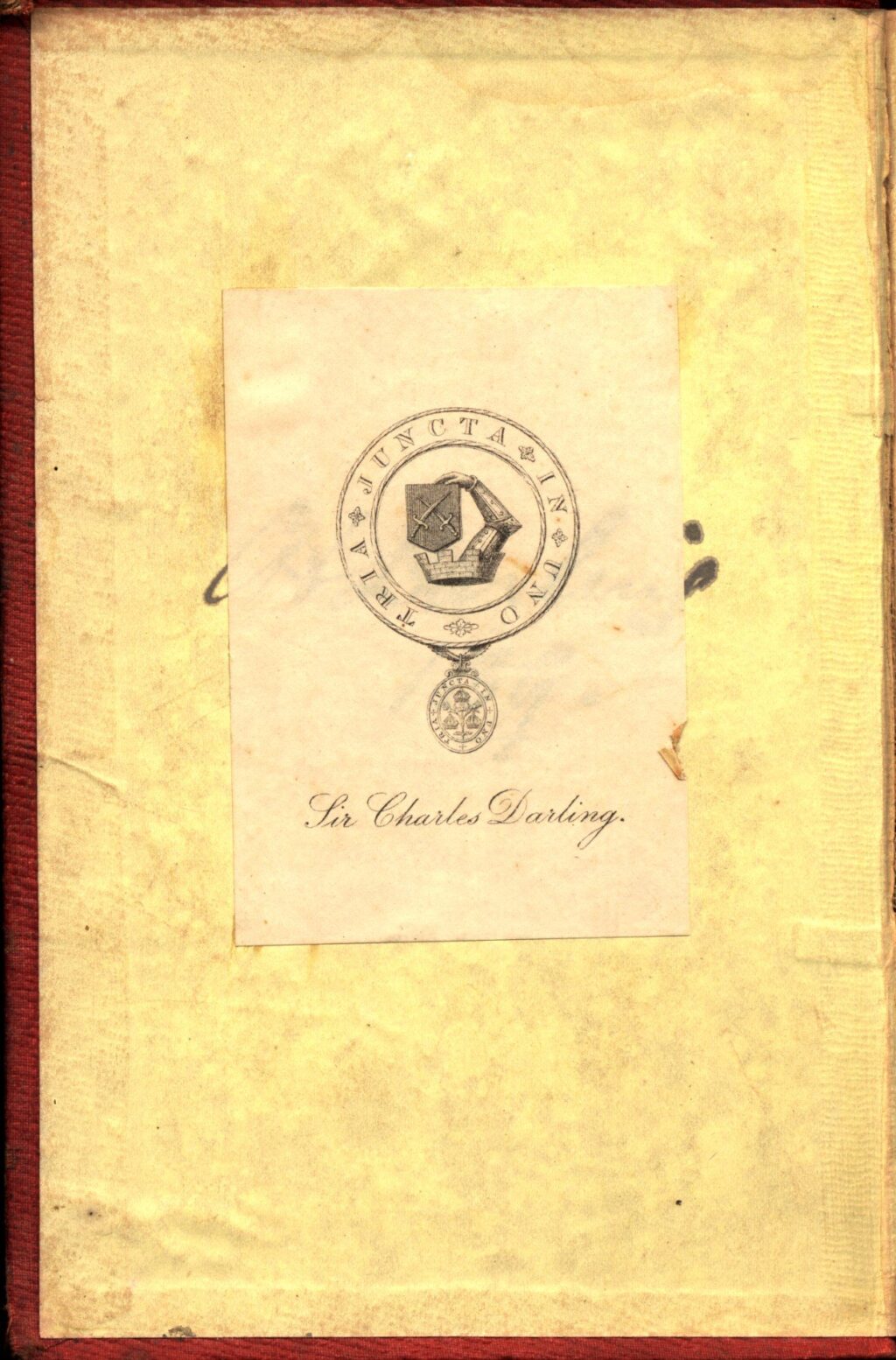John Bull, Common Sense or, Deception Detected in Church, Law, Physic, Army and Navy: Part II: Fine Arts, Science & Literature (1859)
Robert Menzies’s copy of Common Sense is one of the more intriguing artefacts in the Menzies Collection.
The book itself is a long poem gently satirising 19th century English society and intellectual life, written under the patriotic pseudonym John Bull. The second of two volumes, it begins:
‘The five professions we have now surveyed.
Three more remain before we come to Trade;
These from the five, will soon take their affiance,
I mean the Fine Arts, Literature, and Science,
That in refining what was thought refined.
Are now more popular with all mankind;
Diffusing knowledge almost out of sight—
“This rush-light once, is now electric light;”
Compelling smiths hard problems to debate.
From chalk-drawn figures on a boiler plate—
Compelling school-boys to compose a rhyme.
Maternal fondness will pronounce “sublime;”
And the young artist first essay to draw
His sister’s likeness on the pigsty door.
With gratitude may our great men be thought on.
Who by their wisdom do our labours shorten:
The Arts describe what Science would convey.
And Literature does gently lead the way;
Thus hand in hand may always they be seen.
Sowing the earth until again it’s green.
Yielding a harvest, that when ripe shall fall
Spontaneously, before the God of all.’
While this in itself is something of a historical oddity, or a snapshot in time, the real interest is to be found in the former owner of Menzies’s copy of Common Sense, Sir Charles Henry Darling, Governor of Victoria from 11 September 1863 – 7 May 1866. Referred to as ‘The People’s Governor’, Darling acted in such a partisan fashion in directly supporting the government of James McCulloch in his dispute with an undemocratic Legislative Council, that Darling was ultimately recalled by Queen Victoria for constitutional improprieties. On returning to England he was the subject of bitter scrutiny, and ‘broken in spirit and fortune’ he passed away on 25 January 1870. Nevertheless, he remained a hero in the eyes of many Victorians.
That Darling turned himself into a popular martyr was quite surprising, as prior to being appointed to Victoria he had led the very typical privileged life of an aristocratic colonial administrator. Born in Novia Scotia as the son of the former Lieutenant-Governor of Tobago, and the grandson of the Governor of the Bahamas, his uncle was New South Wales Governor Ralph Darling (whose term lasted from 19 December 1825 – 21 October 1831), after whom Darling Harbour is named. Charles served as his uncle’s private secretary in Australia before being posted to the West Indies. Rising through the ranks, he served all over the Empire as Lieutenant-Governor of St Lucia, Lieutenant-Governor of the Cape Colony, Governor of Newfoundland, and finally Governor of Jamaica, Honduras and the Bay Islands before coming to Victoria.
Judging by the fact that Darling has inscribed his copy of Common Sense with the year 1859, he likely procured it when he was in Jamaica, but how it came into Menzies’s possession is anyone’s guess. He could possibly have brought it with him to Victoria, or just as likely, it ended up in England and was there given to Menzies during one of his many visits because of its direct connection to his home State. However Menzies did end up owning Darling’s copy of Common Sense, it is pretty clear that he would have prized it as a unique piece of memorabilia directly connected to a pivotal episode in Victorian political and constitutional history.
You might also like...
Sign up to our newsletter
Sign up for our monthly newsletter to hear the latest news and receive information about upcoming events.

